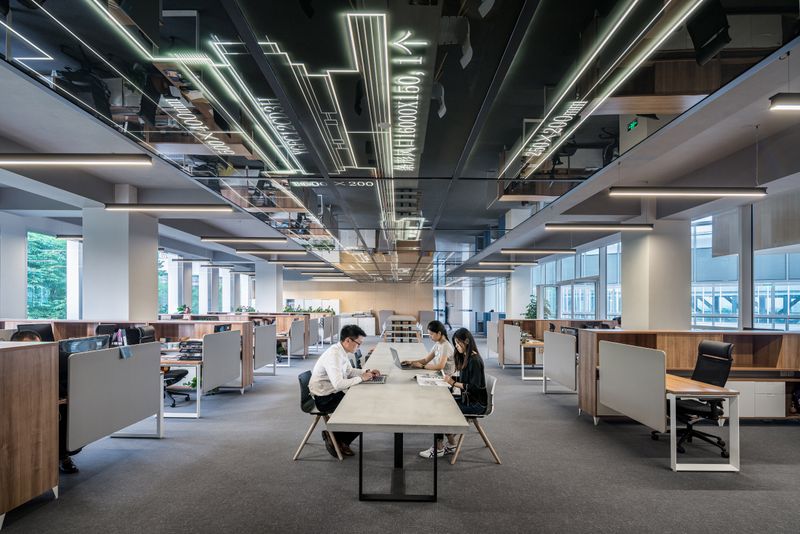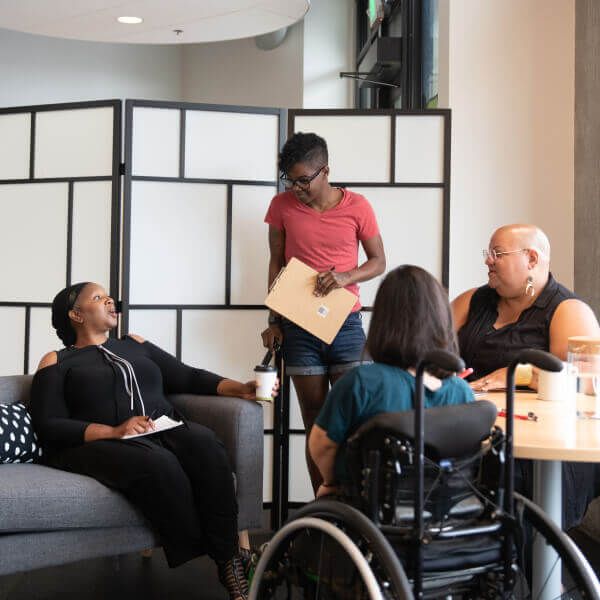Globally, over one billion people have some form of disability.
You might know or work with someone who has a disability... and not even realize it.
In fact, many people with disabilities have successful careers and are fully integrated into society.
 Photo by NASA on Unsplash
Photo by NASA on UnsplashStill, those with disabilities often face disproportionate poverty and unemployment worldwide.

Thankfully, many countries have created laws like the Americans with Disabilities Act to protect those with disabilities.
These laws require organizations to provide reasonable accommodations to employees or applicants for employment with disabilities. But these accommodations can look different for everyone.
So, how can you make your workplace more accessible?
Physical Spaces
One of the easiest ways to make your workplace more accessible is to remove physical barriers so everyone can move around freely.
Install things like:
Ramps and designated parking spaces
Wide doorways and bathroom stalls
Carpet or flooring in contrasting colors
Height adjustable desks
Braille signs

Assistive Technology
Assistive technology are tools that help employees perform their job more efficiently and effectively.
This includes:
Assistive listening devices
Screen enlargement applications
Closed captioning
Enlarged keyboards
Noise-canceling headphones
Ask your employees or co-workers if any of these tools would make their job easier.
Quiz
You've just met a new employee and notice that their face is always too close to the computer screen. Which type of assistive technology do you think they need?
Disability Awareness Training
It's crucial that you're respectful and friendly to your co-workers with disabilities. You can learn how by participating in disability awareness training.
Some ideas for training topics are:
Disability etiquette
Breaking down misconceptions about people with disabilities
Helping co-workers with disabilities during an emergency

Create A Less Stressful Environment
Work can be stressful and over-stimulating. This may cause discomfort to co-workers with mental impairments like autism or anxiety disorders.
Create a more calming workspace by:
Offering meditation or quiet stations
Installing dimmers for the lights
Providing extra time during meetings to allow others to process information
Encouraging frequent breaks away from the desk

Take Action

Ask others on your team: how can we make our jobs and workspace more comfortable?
Pick any of the tips in this Byte to get started!
Your feedback matters to us.
This Byte helped me better understand the topic.

